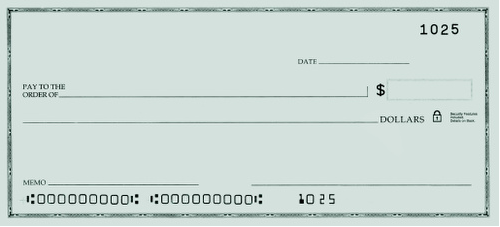Show Me the Money: Smart Collection Strategies
When most cheerleading coaches decide to open their own gyms, they do it for love of the sport, a desire to make a difference with young athletes, a competitive drive to be the best. They don’t do it because they love chasing down accounts every month, but that’s exactly what they’ll have to do if they want their gym to stay open.
“One gym called us for advice and was $100,000 in the hole,” says Tanya Roesel, owner of Midwest Cheer Elite. “And I was like, how did you get there? People will pay what they have to pay for. If you let them think they’re at the bottom of the ladder, they will treat you like that.”
There are many different programs or apps available to make invoicing efficient and painless, and the trick is finding the one that works best for your gym. Kristina McDaniel, owner of NC-based Fury Elite Allstars, recommends Square because it “works best and is super easy.”As for Roesel, she takes a unique approach: after using a parent-created program for a long time, she is now launching a custom-made billing program that resulted from a year-long process consulting with Apple. For her, the key was to think about what technologies parents and coaches were most comfortable with using—in this case, iPhones and iPads.
Heather Crowe-Clark of New York Icons prefers to keep things classic. “I personally absolutely love QuickBooks,” she says. “I have recurring templates set up for every month.”
Staying on top of regular billing is hard enough when everything runs like clockwork, but the reality is that you’re always going to have some parents who don’t pay on time. Roesel has a general e-mail that she sends to anyone who’s delinquent to make arrangements for payment, and then she distributes a list to her coaches of who needs to sit out practice until the fees are paid. “It’s like a utility bill,” she says. “You get a late notice, and then services stop.”
If you are going to assess a late fee, she suggests making it high enough that a parent would balk at it, like 50 dollars as opposed to ten. “If there are eighteen kids on that sit list at the start of the week,” she says, “by Friday there will be zero.”
Sometimes it’s necessary to have a conversation with a parent about the delinquency. Crowe-Clarke thinks that’s the reason some gym owners don’t want to deal with collections—because they don’t want to have that potentially confrontational phone call. “But you’re going to lose that parent anyway,” she points out, “because they’re not going to be able to catch up.”
She says what helps her is to level with parents and explain the various competition fees, equipment charges and uniform costs she has to pay. Helping them understand the money going out reinforces the importance of the money coming in.
Most gym owners hope to never have to escalate collections to the level of involving an attorney or initiating a case in small claims court. But Roesel says that she’s brought several such cases in front of a magistrate, and it’s taught her a lot. “We work really closely with our judge so that our document that parents sign is approved by the judge,” she says.
She’s also learned not to release merchandise to a parent unless it’s been fully paid for. “When you go to court, you bring the merchandise with you, so that the judge can see that you did have to purchase the merchandise and couldn’t cancel the order,” Roesel says. When merchandise is released and payment never received, the charges could go from civil to criminal, because at that point, it’s theft by deception.
What’s clear is that the best way to stay out of court—and keep the money flowing in your gym—is to be proactive with parents. Auto-debit is one strategy that makes payment more convenient for parents and more assured for a gym owner. Crowe-Clark has had success with auto-debit, and she also works with her families to create different options where they can pay weekly, monthly or in a lump sum as might be convenient. For families who are more financially needy, she says, she’s worked out discounts on tuition in exchange for help with cleaning the gym, assisting or junior coaching. “I’m never going to let a kid not cheer for my gym because they can’t afford it,” she says.
–Alicia Thompson







